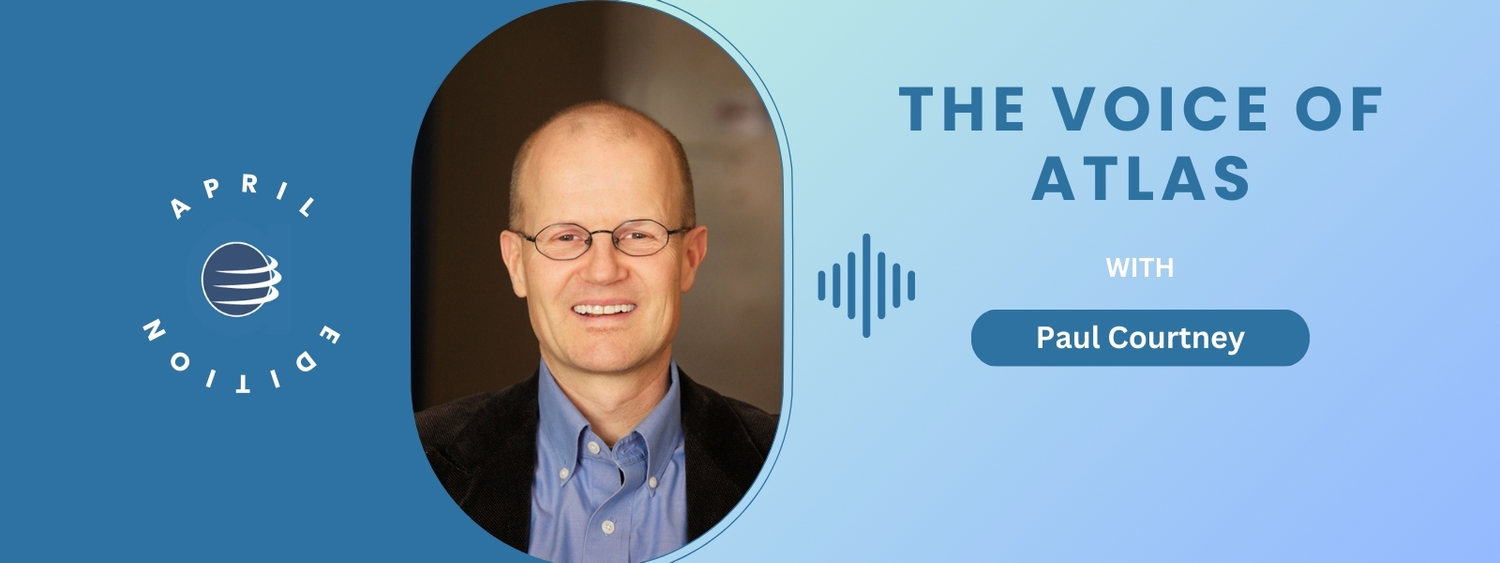Today on The Voice of Atlas, we’re spotlighting Paul Courtney, a passionate leader and long-standing member of the Atlas community. Based in Vancouver, Canada, Paul is the owner of Courtney Agencies, a company with deep family roots and a forward-thinking approach to sustainable logistics. From embracing innovation to championing eco-friendly practices, Paul shares his insights on what it means to lead with purpose in today’s evolving industry.
How did you begging your career in the logistics industry, and what has your journey been like so far?
It has been a family affair for over 3 generations. My grandfather managed a Customs brokerage and ships agent firm and then my Dad started Courtney Agencies in 1955. I did not want to pursue the family business initially but after trying other things, it made me appreciate this business and I quickly learned to love it. My wife and I now own Courtney Agencies as well as PMK International in the U.S.
How have you seen technology transform logistics in the past 5 years, and what are you most excited about for the future?
The biggest change over the last 5 years has been Artificial Intelligence and Machine learning. We are investing significantly in this and although it has been going much slower than expected we continue to push forward. We believe in this not as a way to reduce employment but as a way to move our people to be truly knowledge workers and to better monetize those skills.
Sustainability is a hot topic in logistics. How is your organization approaching eco-friendly practices?
I’ve always believed that business can be a force for good, which is why in 2022, Courtney Agencies became a Certified B Corporation. A significant part of our certification focuses on our eco-friendly practices. We measure our carbon footprint, reduce it wherever possible, and offset the remainder. We also calculate the carbon footprint of all freight movements on behalf of our customers—and we offset all of it. While we initially considered offering carbon offsetting as an optional service, we found it far more effective to include it as a standard part of our unique offering. That said, we know that reducing impact is even more important than offsetting, so we prioritize lower-impact transportation solutions wherever we can.
If you could change one thing about the logistics industry, what would it be and what impact do you think it would have?
I know this has been said many times but we really need to be confident in the value we bring to the supply chain realizing that if you win something on price you will lose it on price. Also to remember that we have to support employees at the cost of living in our local markets.
What’s one piece of advice you would give to someone just starting in your line of work?
Don’t do it…just kidding. Work hard but remember that it is much more important to work smart. When you find a good place to work give it your all but also be confident (not over confident) in the value you bring.
What do you wish someone had told you before you started in logistics?
It is important to have a solid industry training background but if you have the opportunity it is also so important to have a well-rounded university education with the friends and contacts that brings.
What’s one thing you enjoy most about being a member in Atlas network?
Knowing there will be a quality organization to support what we need in most parts of the world.
When you’re not focused on logistics, how do you like to unwind and enjoy your free time?
Hanging out with my family that includes my wife, son (18) and daughter (11) but also being active from x/c skiing, all types of biking, running, soccer (yes at 60) and golf.
What’s one thing your colleagues would be surprised to learn about you?
I have been on the board of www.ciffa.com for about 15 years, am the current Treasurer, Chair of the Customs committee and in line to be Chair of the entire organization in less than two weeks[April 3rd] (fingers crossed).
Thank you, Paul, for sharing your story and inspiring the Atlas community.


